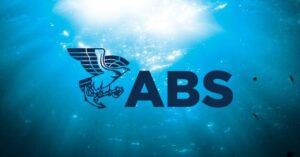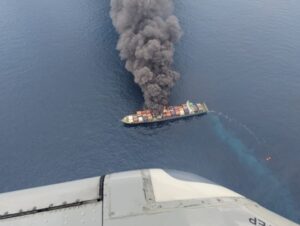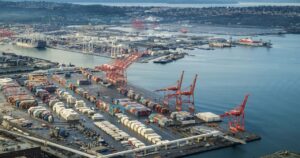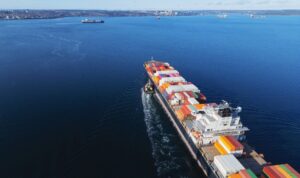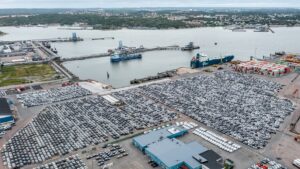Lloyd’s Register (LR) and CORE POWER have launched a joint regulatory assessment study to investigate the regulatory feasibility and frameworks required for a nuclear containership.
Following preliminary planning, industry leaders, including A.P. Moller-Mersk (Maersk), signed a joint development project agreement to carry out the study.
The collaborative research will look into the requirements for revised safety norms, as well as enhanced operational and regulatory knowledge, for the use of nuclear power in container shipping.
Furthermore, this study will give information to members of the marine value chain that are investigating the economic case for nuclear power to assist design their fleet strategy toward net zero GHG emissions.
The research will combine LR’s expertise as a trusted consultant to the marine sector, CORE POWER’s experience developing innovative nuclear energy technology for maritime applications, a leading Port Authority, and Maersk’s substantial shipping and logistics knowledge.
READ: Lloyd’s Register highlights ammonia marine fuel requirements
Nick Brown, CEO, Lloyd’s Register, said: “The initiation of this joint study marks the beginning of an exciting journey towards unlocking the potential of nuclear power in the maritime industry, paving the way for emissions-free operations, more agile service networks and greater efficiency through the supply chain.
“A multi-fuel pathway to decarbonising the maritime industry is crucial to ensuring we as an industry meet the IMO’s emission reduction targets and nuclear propulsion shows signs of playing a key role in this energy transition.”
Mikal Bøe, CEO, CORE POWER, stated: “There’s no net-zero without nuclear. A critical key to unlocking the vast potential for nuclear energy to transform how the maritime sector is powered, is the standards framework for commercial insurability of floating nuclear power plants and nuclear-powered ships that would operate in nearshore environments, ports, and waterways.”
READ: Lloyd’s Register, COFCO partner to decarbonise freight operations
Ole Graa Jakobsen, Head of Fleet Technology, A.P. Moller–Maersk, explained: “Nuclear power holds a number of challenges related to for example safety, waste management, and regulatory acceptance across regions, and so far, the downsides have clearly outweighed the benefits of the technology.
“If these challenges can be addressed by development of the new so-called fourth-generation reactor designs, nuclear power could potentially mature into another possible decarbonisation pathway for the logistics industry 10 to 15 years in the future.”


